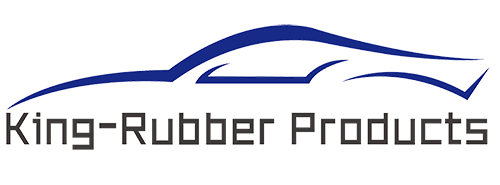The modern society is heavily dependent upon rubber- both natural rubber and synthetic rubber! Rubber products are used everywhere- at work, at home, at play, and even while we move using any mode of transportation- automobiles, trains or aircrafts. Industries too use rubber to make various products ranging from rubber hoses, belts, gaskets to tires and rubber molding among many other rubber products. The common factor between all these goods is the rubber but there are differences too and the basic difference is the type of rubber used- natural and synthetic rubber!
Natural and Synthetic Rubber
Before moving on to know the uses and advantages of natural and synthetic rubber, it seems apt to know the basics of natural rubber as well as synthetic rubber.
Natural rubber has a high tensile strength and is resistant to fatigue from wear such as chipping, cutting or tearing. On the other hand, natural rubber has only moderate resistance to damage from exposure to heat, light and the ozone in the air. Natural rubber also has tack, which means it can adhere to itself as well as other materials. It adheres particularly well to steel cord, which makes it an excellent material for use in tires.
Synthetic Rubber is any type of artificial elastomer, invariably a polymer. It is produced in factories with the use of different catalysts. The feedstocks for synthetic rubber industry are products of the petrochemical industry. In general, synthetic rubber offers better resistance to abrasion than natural rubber, as well as superior resistance to heat and the effects of aging. Many types of synthetic rubber are flame-resistant, so it can be used as insulation for electrical devices. It also remains flexible at low temperatures and is resistant to grease and oil.
Rubber- natural or synthetic- is usually vulcanized, most often with sulfur. For some specialty uses, other agents are also used sometimes.
Why do We Use Natural and Synthetic Rubber?
Due to its many characteristics like elasticity, resilience, and toughness, rubber is used for making many products for such sectors as transportation, industrial products, consumer products, hygienic and medical sectors. Whether natural or synthetic- rubber has certain common characteristic features because of which we use natural and synthetic rubber.
• Rubber is elastic as well as water-resistant.
• It is resistant to alkalies and weak acids.
• Rubber has such characters as elasticity, toughness, impermeability, adhesiveness, and electrical resistance. All these properties of rubber make it useful as an adhesive, coating composition, a molding compound, and an electrical insulator.
• It traps air and thus it floats.
• It is a bad conductor of electricity and thus doesn’t conduct electricity.
Natural or synthetic rubber- both of them in their native form are useless. After addition of chemicals, these rubbers take on properties that cannot be competed by any other known material in the world. Depending on the chemicals used, products made of rubber can be soft, resilient, and/or hard in varying degrees.
Natural and Synthetic Rubber Applications
Rubber Products
The majority of rubber- natural as well as synthetic rubber- is used for automobile tires. However, for this and for similar other applications of rubber, a filler or reinforcing agent must be added (carbon black is by far the most common filler for the purpose). The unprocessed rubber, especially natural rubber, is used in such products as adhesives, contraceptives, and latex balloons. Vulcanized rubber which is harder, less elastic, and more durable is extensively used for various purposes such as for making vehicle tyres and hose pipes and even artificial hearts to waterproof gaskets. The following areas use natural and synthetic rubber for making various products.
· Transportation sector uses most of the natural and synthetic rubber. It is the largest end user of rubber most of which goes into making tires and tire products.
· Rubber is also used for making industrial products like transmission and elevator belts, hoses, tubes, industrial lining, bearings etc.
· Synthetic and natural rubbers are also used for making consumer goods such as footwear, sports goods like balls, erasers etc.
· Health sector too uses rubber for making such products as condoms, catheters, surgical gloves etc.
· Rubber is also used for making many seismic materials such as seismic rubber bearings used in building construction.
· Rubber is used for making latex goods too like threads, adhesives, molded foams, gloves etc.
Post time: Jul-14-2020
